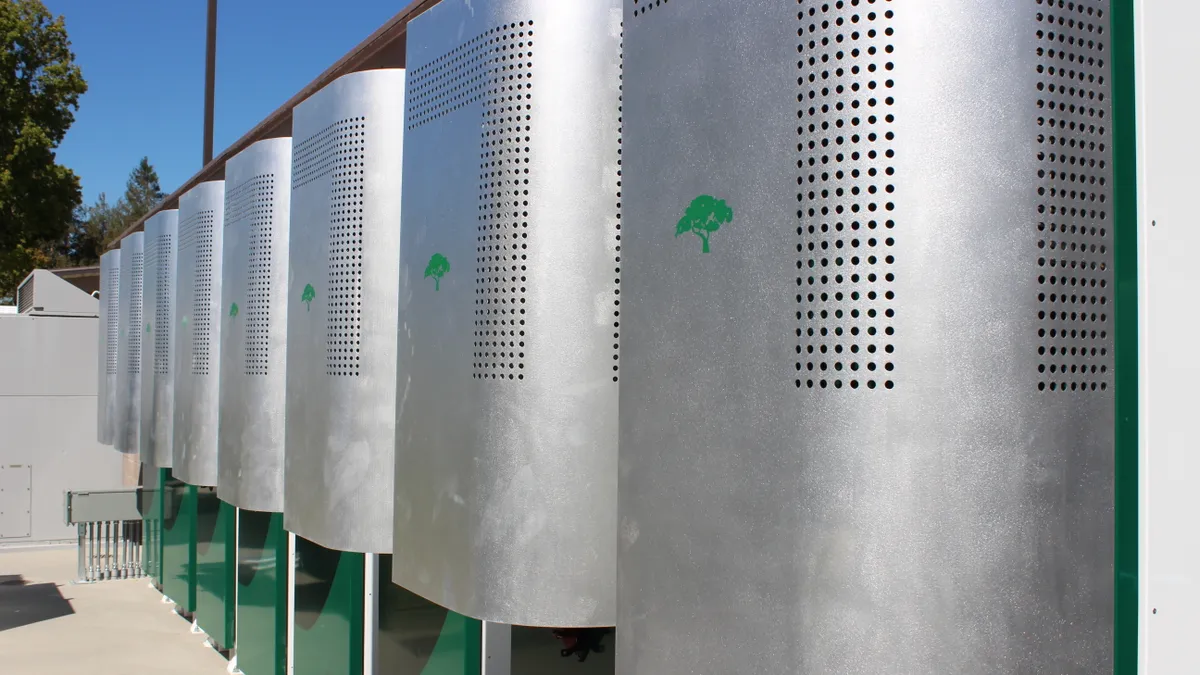Dive Brief:
-
Engie, the energy company formerly known as GDF Suez, has acquired an 80% stake in Green Charge Networks, a seller of behind-the-meter batteries, for an undisclosed sum, Greentech Media reports.
-
Green Charge, based in Santa Clara, Calif., markets its energy storage and battery-solar expertise to commercial, industrial and public energy services customers. Greentech Media notes this is one of the first major acquisitions taking place in the energy storage space.
-
The Engie investment follows capital investments in Green Charge from $56 million raised from K Road DG in 2014 and an undisclosed sum from angel investors, and $50 million in non-recourse debt from Ares for new projects.
Dive Insight:
Energy storage is attracting a growing amount of interest from large corporate players. Oil and gas giant Total recently announced plans to acquire Saft, and Lockheed Martin recently entered the market for energy storage, targeting commercial and industrial customers.
Engie hopes to leverage Green Charge Networks’ stand-alone battery and solar-plus-battery solutions by combining it with its existing sales of decentralized energy management, off-grid applications.
“Together with Green Charge, we’re able to offer an even greater range of leading-edge solutions for commercial, industrial, and public sector customers,” Frank Demaille, president and CEO of the North American business unit of Engie, said in a statement.
Engie subsidiaries Ecova and OpTerra Energy Services work with commercial and industrial clients to reduce waste and optimize energy use, that is, reduce kWh consumption. Green Charge focuses on reducing demand by injecting stored power to avoid spikes in grid power consumption, which can help reduce demand charges.
“On that kilowatt-hours side of the business, most of the low-hanging fruit is gone,” Green Charge CEO Vic Shao, said. “The next frontier is on the kilowatt side, on the power side — and offering energy storage.”
Green Charge competes against California energy storage startup Stem, as well as SolarCity and Tesla, whom both have rolled out behind-the-meter solar projects, the news outlet noted.













